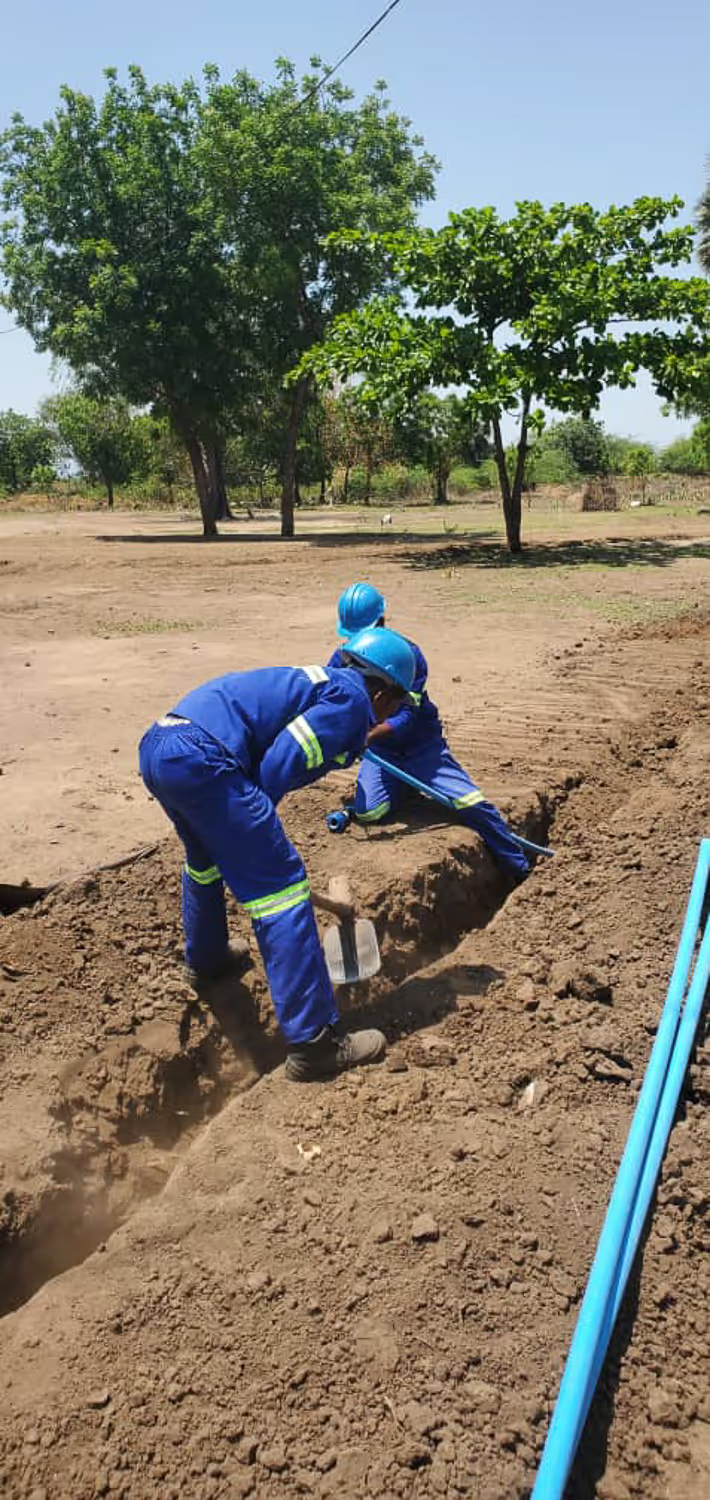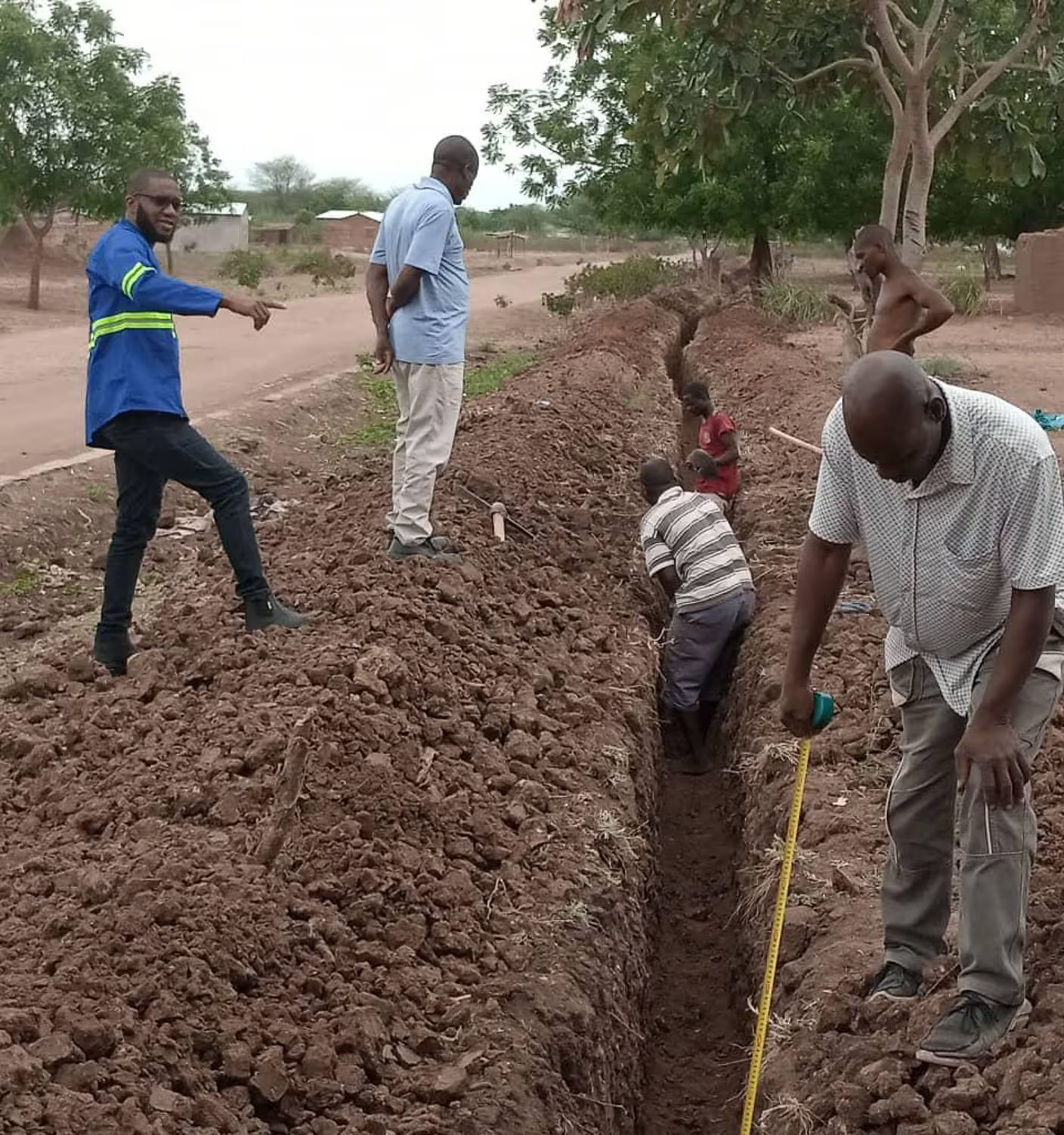We often assume groundwater is the solution to water problems in rural areas. Dig a borehole, find water, problem solved. But sometimes—like in Mpheza, a community in T/A N’gabu, Chikwawa—it’s not that simple.
Under the Trocaire ICSP program, BASEflow partnered with the Southern Region Water Board (SRWB) to expand the Misewu Folo water scheme into Mpheza. This decision wasn’t just about convenience—it was about necessity.
Initially, the community had two options. The first was to drill a new borehole near Saindi Primary School, where a freshwater aquifer was suspected, and reticulate through a pipe network to the rest of the community. However, this option came with risks—there was no guarantee of hitting freshwater due to salinity (salty groundwater) which is a major problem in the area, scalability would be limited, and the community committees would have to manage maintenance costs for the water supply system that was unusable to begin with. The second option was to work with SRWB to extend the Misewu Folo water scheme—a piped network some 5 kilometers away with a guaranteed freshwater supply and scalable infrastructure. SRWB would also handle system maintenance up to the meter, ensuring reliability. The trade-off? The community would have to regularly pay SRWB the full-cost recovery tariff (water fee) based on consumption, something the community was not used to.
What option would the community choose? We asked them.
Several sensitization meetings were held to explain both options clearly. The community was given the power to choose between cheaper community-managed water supply that would likely be supplying salty water OR a professionally managed freshwater supply system that might cost a little more than they were used to. They selected SRWB’s scheme. Their decision was practical, as one resident said, “There are so many of us in need, and this option gives us a better chance to reach everyone, not just a few.”
A Conversation That Stuck with Me
I spoke with Yusta Manani, a resident of Mpheza, about what this project means for her. Her words reflected a deep sense of relief.
She said, “We are very grateful to SRWB for bringing water to our community. Honestly, this will help us a lot because we had no other choice except the river Likalango. We’ve been drinking the same water as the cattle. The boreholes here? Salty. You can’t use that water for anything. We were walking long distances to find water, and even then, it wasn’t clean or safe. It’s been such a struggle.”
While the new water system comes with a small fee—K4 per 20-litre bucket or K200 per 1,000 litres—Yusta told me it’s worth every kwacha. “Yes, the kiosks aren’t free, but the fee is small. We are happy to pay because this water changes everything. Finally, someone listened to us.”
Her gratitude was clear. It’s not just about water—it’s about dignity and a better quality of life.
The expanded Misewu Folo scheme will directly serve about 1,100 people, and will indirectly benefit even more. The kiosks will also create paying jobs through Water Point Committees (WPCs) who will be paid to collect tariff and handle minor repairs.
Sometimes, groundwater works. Sometimes it doesn’t. In Mpheza, the solution was extending an existing fresh water system to make a difference.
This is more than a water project. It’s proof that when communities are heard, real solutions can be found. Mpheza got the help it needed—and it’s only the beginning.
LIke what we do ?
Please click the Download button below to get the manual and start contributing. Or if you like what we are doing and would like to support our work, click the Donate button.



